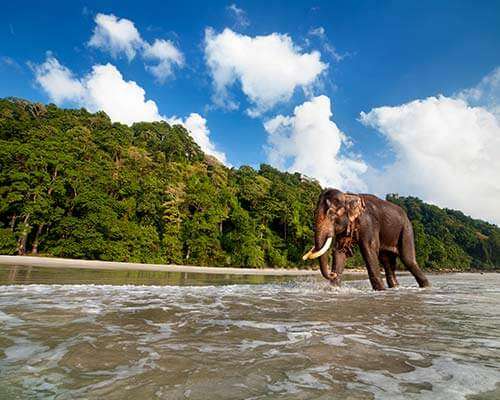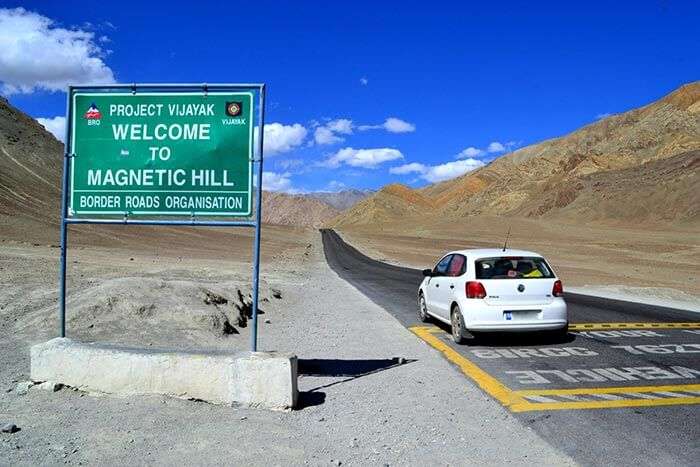Responsible Tourism: 5 Simple Tips To Be A More Sustainable Traveler

Have you ever thought about the enormous impact traveling has on the planet? A lot of young people have lately taken to traveling to ease the burden of the breakneck pace of modern life. Digital nomads is the buzzword of our time. When you’re on a tight budget, there’s a high chance you may make reckless travel choices, like buying plastic products or riding captive elephants. Our guide on responsible tourism will show you how to travel on a budget and still travel sustainably.
What Is Responsible Tourism?
According to the World Tourism Organisation’s 2017 report, 1.2 billion people travel per year, which is roughly 15% of the population. Now let’s face it, very few of them go out their way to become a more sustainable traveler. Also known as intentional, mindful, no footprint, and green travel, the basic premise of responsible tourism is to limit any negative sociocultural and ecological effects your travel may have on the planet. Ecotourism not only provides tangible economic benefits to local communities, but it also makes your journey more authentic, exciting, and culturally immersive. Therefore, it is a win-win situation for the tourist, the host, and the planet.
Must Read: 15 Rivers Of The World: Soak In The Mesmerizing Sights Around The World
Looking To Book An International Holiday?
Book memorable holidays on TravelTriangle with 650+ verified travel agents for 65+ domestic and international destinations.
5 Essential Tips For Responsible Tourism
Are you thinking: Do I have to volunteer with a rescue to earn the badge of a sustainable traveler? No, you don’t. You can take these easy-to-follow steps to travel consciously. Here are top 5 tips for responsible tourism:
1. Choose Eco-Friendly Modes Of Transport
Green transportation is a significant factor in responsible tourism. Therefore, consider transport options with the goal of minimizing your carbon footprint. The aviation industry is the main culprit, so try to fly as little as possible. Can you reach your destination without a car? Hire a bike or walk when it’s convenient, you not only reduce pollution but also become more healthy in the process. Use public transport whenever possible to reduce the number of cars on the street.
Suggested Read: Ecotourism Found New Meaning As Karnataka Unveiled 30 Foot Tall Canopy Walk
2. Support The Local Communities
You can contribute to local economies by staying at homestays, respecting local culture and customs, and buying local food, products and services. In turn, engaging with local communities and resources will provide you with a memorable experience. As exciting it is to engage with a different culture, make sure to always be respectful and ask the locals before taking their picture. Also remember, if the food wasn’t grown locally, it had to be transported by truck, which again takes us back to our objective of lowering our carbon footprint.
Suggested Read: 10 Marvelous Rock Formations In The World Which Will Leave You Mesmerized!
Planning your holiday but confused about where to go? These travel stories help you find your best trip ever!
Real travel stories. Real stays. Handy tips to help you make the right choice.
3. Use Less Plastic
Pack only what’s necessary, and practice “reduce, reuse, recycle” throughout your journey. Get a reusable water bottle that you can refill instead of buying a bunch of disposable plastic bottles. Whenever possible, skip the straw. You could say it’s just a trifle, but according to the National Park Service, Americans use 500 million plastic straws per day. Make sure you pack a reusable shopping back for your trips.
Suggested Read: 20 Famous Bridges In The World That Are The Icons Of Modern Architecture
4. Don’t Litter
Carry all non-degradable rubbish such as empty bottles, tins, and plastic bags back with you. These must not litter the natural environment or be buried. They should be disposed off in dustbins only. Litter from land sources usually finds its way to the sea via rivers, drains, sewage outlets. Remember that dirty beaches do not attract tourists. So, try and leave a place better than you found it.
Suggested Read: 8 Best Red Sand Beaches Around The World To Add A Twist To Your Beach Vacay
5. Think Twice About Animal Tourism
Respecting the native wildlife, and refusing to purchase items made from endangered species, such as tortoiseshell, is an important criterion for responsible tourism. Most animal-based tourism in the world is abusive to animals. Typically, if an attraction is profit making, then animal welfare is not its priority. The cruelest animal tourism activities include: riding elephants, crocodile farms, walking with lions, holding sea turtles, watching performing dolphins, dancing monkeys, and charmed snakes, among other things.
Further Read: World’s Dangerous Airports: Where Take Off And Landing Could Be A Matter Of Life & Death
No matter what your reasons for visiting a destination are, do a bit of research prior traveling to check whether you’re not (albeit unconsciously) contributing to irresponsible tourism. Defacing architectural heritages or mocking the customs of ancient communities are real-life examples of atrocious tourist behavior. With time, more and more travelers are recognizing that responsible tourism will shape not only our future but also our planet’s future. Remember that every drop counts. Respect and preserve the beauty of different people and cultures inhabiting our natural world and educate others to do the same. Book a world trip more responsibly in the future and set an example for the rest of the traveling community.
Looking To Book A Holiday Package?
Book memorable holidays on TravelTriangle with 650+ verified travel agents for 65+ domestic and international destinations.













































